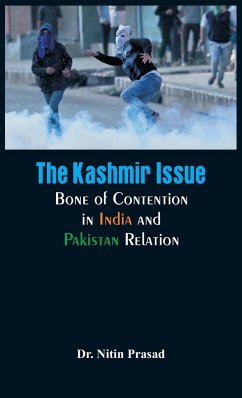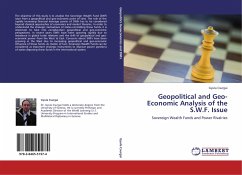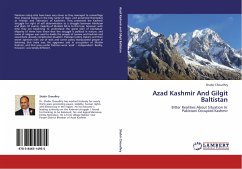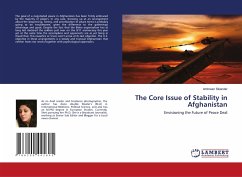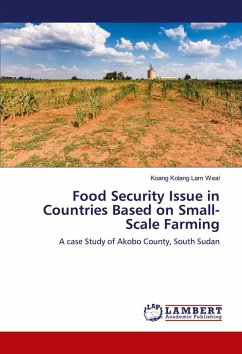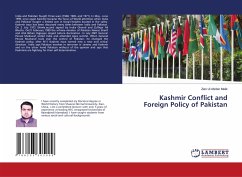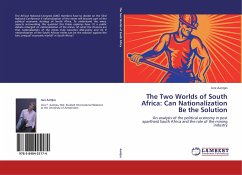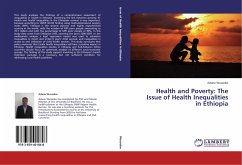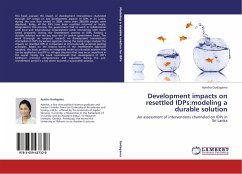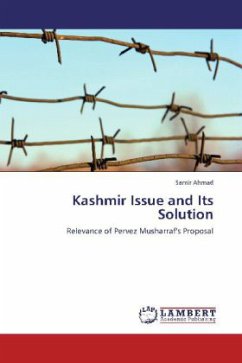
Kashmir Issue and Its Solution
Relevance of Pervez Musharraf's Proposal
Versandkostenfrei!
Versandfertig in 6-10 Tagen
45,99 €
inkl. MwSt.

PAYBACK Punkte
23 °P sammeln!
In the post military situation in Kashmir a number of factors both locally and at the international level impacted the relations between the two countries and the regional context within which these relations operated. It began with the end of cold war and emergence of the unipolar global order. In 1998 the two countries tested their nuclear arsenal and emerged as de facto nuclear powers. Subsequently, the developments of 9/11 have had tremendous impact on how violent political movements were to be judged and dealt at global level. It was within this context that many people started highlighti...
In the post military situation in Kashmir a number of factors both locally and at the international level impacted the relations between the two countries and the regional context within which these relations operated. It began with the end of cold war and emergence of the unipolar global order. In 1998 the two countries tested their nuclear arsenal and emerged as de facto nuclear powers. Subsequently, the developments of 9/11 have had tremendous impact on how violent political movements were to be judged and dealt at global level. It was within this context that many people started highlighting the value of resolving conflicts and building peace for the greater good of the region. In this context one of the important and latest proposals came from General Pervez Musharraf. His Four-Point proposal of identifying regions, demilitarizing the identified regions, introducing self-rule and developing a joint mechanism is being debated and discussed within the political circles. However, the question is how much acceptability this Formula enjoys with the people of Kashmir. Any solution to Kashmir will be valid only if it is going to be accepted by the people of Kashmir, primarily.



